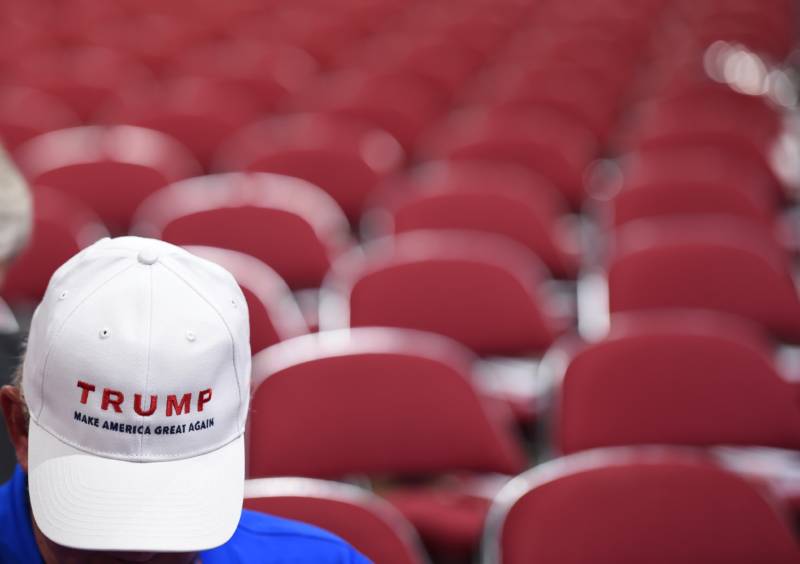So why jump to the conclusion that Clinton's lead in July translates to near-certain victory in California in November? It's a matter of history.
First, it's nearly unheard of for a presidential candidate with a big Field Poll deficit in June or July to turn things around and win the state in November. Since 1972, that's happened just once. That was in 1988, when George H.W. Bush came back from a 16-point disadvantage in the poll to win by 3 percent.
A 19-point swing? Pretty impressive.
But that brings us to Point No. 2. The '88 campaign marked the last time a Republican carried California, and the trend in the post-primary Field Polls over the last two decades shows Democratic candidates holding wider and wider leads. It's not clear that a Republican could repeat the sort of comeback that Bush the Elder staged.
Mark DiCamillo, the Field Poll's director, says that's due in large part to California's dramatically altered body politic.
"Since 1988, a lot has changed in terms of the composition of the electorate," DiCamillo says. "There are now many more ethnic voters as part of the electorate. That includes Latinos and Asian-Americans, both of which are Democratic-voting constituencies by and large, and that has really transformed California politics."
In 1988, DiCamillo points out, just 8 percent of the state's registered voters were Latino. That figure today: about 25 percent. Moreover, DiCamillo says, three of four Latinos register as Democratic in California for every one who registers Republican.
"So just that one group alone tells you a lot about the changes that have taken place in the state," DiCamillo says.
Finally, Point No. 3. There's the history of the poll itself in recent presidential elections.
Although no one expects a survey conducted four to five months or more before Election Day to be predictive, it’s surprising to see how closely the early Field Poll margins reflect the November outcome. From 1996 through 2008, the Field Poll's early poll margins proved to be within a point or two of the final vote margins.
In June 2000, for instance, the Field Poll showed Democrat Al Gore with an 11-point lead over Republican George W. Bush. In November, Gore won 53 percent of the Golden State's vote to Bush's 42 percent.
Of course, Bush won that election. Something to do with chads. And Florida.
That result bears out the reality that a candidate can capture the White House without winning California -- though that's not an easy thing. The last Democrat to win the presidency without winning California was Jimmy Carter, in 1976. And only three other Democrats -- John F. Kennedy in 1960, Woodrow Wilson in 1912 and Grover Cleveland in 1884 -- lost in California and still won the election.
Besides Bush the Younger, who lost California by large margins in both 2000 and 2004, the only Republican to win the presidency without prevailing in California was James A. Garfield, in 1880.
